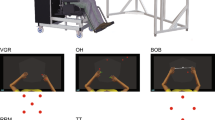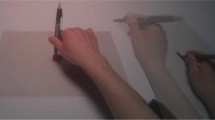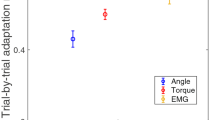Abstract
A TEST of ‘steadiness’ has been used in this Department as a class experiment, in order to illustrate the importance of the ‘double blind’ principle in the design of controlled clinical trials. The apparatus of Seashore and Adams1 was chosen. Steadiness is measured as the ability to hold a metal stylus in position for a fixed period within holes of graduated diameters, drilled in a metal plate, without allowing the stylus to come into contact with the sides of the hole. An index of steadiness is obtained by multiplying the contact times for each hole by arbitrary factors related to the hole diameters, and summing the result.
This is a preview of subscription content, access via your institution
Access options
Subscribe to this journal
Receive 51 print issues and online access
$199.00 per year
only $3.90 per issue
Buy this article
- Purchase on Springer Link
- Instant access to full article PDF
Prices may be subject to local taxes which are calculated during checkout
Similar content being viewed by others
References
Seashore, R. H., and Adams, R. D., Science, 78, 285 (1933).
Spaeth, R. A., and Dunham, G. C., Amer. J. Physiol., 59, 467 (1922).
Author information
Authors and Affiliations
Rights and permissions
About this article
Cite this article
ACLAND, J. Scoring of a ‘Steadiness’ Test. Nature 185, 337–338 (1960). https://doi.org/10.1038/185337a0
Issue Date:
DOI: https://doi.org/10.1038/185337a0
Comments
By submitting a comment you agree to abide by our Terms and Community Guidelines. If you find something abusive or that does not comply with our terms or guidelines please flag it as inappropriate.



